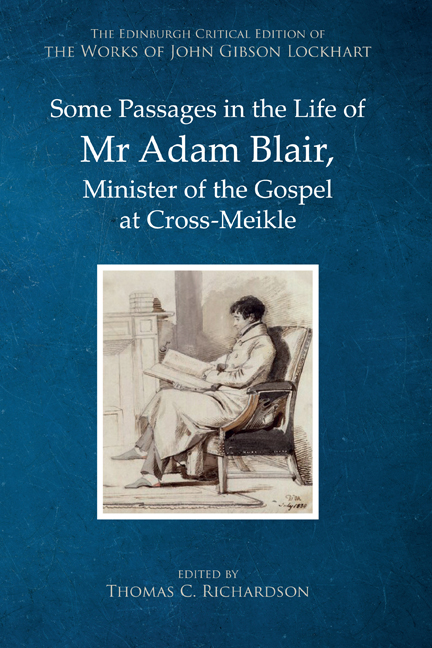Appendix: ‘Hints for a Young Author, from A Very Old One’
Published online by Cambridge University Press: 10 October 2020
Summary
[THESE hints reached us after the last Number of the Magazine was printed off. We insert them now for the sake of the person, whoever he be, to whose work they refer—Audiat vocem ULTIMI ROMANORUM!—C. N.]
ADAM BLAIR.
THIS is a work of real genius. There is much nature and pathos in it. There is also novelty in the plan of the story, not dealing in high sentiment or romantic adventures, but in the walk of ordinary life, and among persons of middling rank; an example more applicable from these circumstances, than those high-toned narratives, which do not speak to the business and bosoms of ordinary persons.
There is poetical justice, and perhaps something more in the punishment of vice, if vice it may be called, which is only one lapse from virtue, not premeditated, or concealed, but the effect of accidental circumstances occurring unexpectedly, of delirious passion, of the senses excited by agitation or by wine. This lapse, this momentary lapse, (as it may be called) is followed by a long track, almost a life, of bitter and agonizing remorse, remorse of the inward man, not sharpened by the taunts of irreligious scoffers, or the shame of exposure to the world.
—Admirable character of the old Elder, John Maxwell, and we believe not at all uncommon in Scotland, where education being accessible to all, even the very poorest of the people, those of humble life learn to read, to think, to value religious comforts, and to rest upon its assurances of a happy eternity, to balance many privations in this life.
—Lady Semplehaugh is also a most amiable character, of the same serious cast, religious without fanaticism, and charitable and forgiving to the failings of others, though pure and virtuous herself.
—Redundant and diffuse in many parts where the narrative should be compressed and rapid. The descriptions of natural objects are well delineated, but are not always necessary to any purpose in the story, and but slight adjuncts to it. Moral reflections and abstract principles also seem too frequently introduced, and too much expanded;—they are anticipated by the reader, instead of being suggested to his mind, which takes away that interest which is always created by the discovery, or supposed discovery, of the reader himself.
- Type
- Chapter
- Information
- Publisher: Edinburgh University PressPrint publication year: 2020



